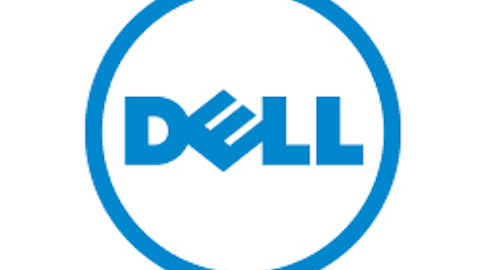
Icahn’s recapitalization alternative
Icahn and Southeastern, two of Dell Inc. (NASDAQ:DELL)’s biggest shareholders, propose a recapitalization plan, or “recap,” that has the company borrow money and use available cash to pay shareholders $12 for every share they own. The plan also allows holders to keep a stock interest, or “stub,” in the company with the money they receive.
The activists argue in a letter sent to Dell Inc. (NASDAQ:DELL)’s board that the company’s stub value could be worth much more than the $1.65 needed to match the buyout offer of $13.65 a share ($12 in cash plus the value of the stub). They believe that the company, which operates a large enterprise-focused computing business in addition to its ailing PC division, has significant value due to its strong ties with Microsoft and Intel. They also believe meaningful cost savings from merging assembly plants and opportunities to spin off non-core businesses would add value.
Can shareholders benefit from the recapitalization?
Assessing whether the recap is a good deal requires estimating the stub’s fair value. A clear headwind to a stub premium is Dell Inc. (NASDAQ:DELL)’s deteriorating operations. The company’s reported revenue in the latest quarter came in at $14.3 billion, an 11 percent decrease from the prior year, and unadjusted operating income was $698 million, down from $931 million previously. Trouble in the company’s key PC business remains the most significant drag. Those revenues declined 20% quarter-over-quarter.
On the other hand, there has been some good news. The company’s results showed a 4% increase in total revenues sequentially, with the PC business showing a 3% gain. Dell Inc. (NASDAQ:DELL)’s server business also remained strong with a 5% revenue increase from the previous year and their networking business continued to grow, jumping 42% quarter-over-quarter.
The value of the stub might be best estimated by using these recent results to forecast an annualized base case that would then be the basis for a valuation method that multiplies expected cash earnings against a market capitalization multiplier. One scenario assumes a base case where the company is able to stabilize annual sales around $47.0 billion and cash earnings at $1.9 billion, compared to $57.0 billion in sales and $2.3 billion achieved in Dell Inc. (NASDAQ:DELL)’s latest full year. After an approximate $500 million reduction to base case earnings for the assumed increase in interest expense and loss of cash income from the recap plan, the company’s post-recap earnings level would be estimated at $1.4 billion. Applying a generally pessimistic market multiple of five to those earnings puts the business value around $7 billion, or roughly $4.00 per stub share. Given that value, plus the $12 in cash offered, the total worth of the recap plan under this assumed scenario would be around $16 a share, or about a 17% premium to the current offer.
Is this valuation reasonable?
The reasonableness of this stub fair value calculation relies on two assumptions: that the company can stabilize the business and that the multiple of five is appropriate. One way to judge these assumptions is to look at how the market views Dell Inc. (NASDAQ:DELL) peers in similar circumstances.
Hewlett-Packard Company (NYSE:HPQ) is in a situation that probably comes closest to Dell Inc. (NASDAQ:DELL)’s. Though larger in scale and offering a wider array of products and services, its challenges are very similar. Hewlett reported that its $30.0 billion in revenue for the latest quarter was down 7% year-over-year and its adjusted earnings of $1.16 a share, was down 1%. Its Personal Systems division, mainly PC related, had a revenue drop of 14%. Within this business, commercial sales decreased 13%, consumer revenue declined 16%, with both desktop and notebook unit volume falling 12%. While concentrating on beefing up its services business, the company’s server, storage and networking business declined, with revenues falling 9% year-over-year. Given these results and based on expected annualized revenues of $113.3 billion and $5.9 billion in earnings, Hewlett trades at a current market multiple of approximately seven.


